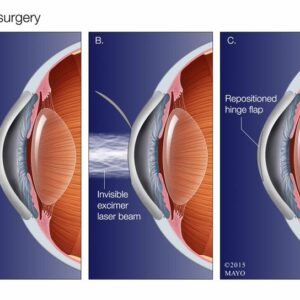Description
Pediatric neurosurgery is a specialized surgical field dedicated to the diagnosis and treatment of neurological conditions in infants, children, and adolescents. Pediatric neurosurgeons have extensive training in caring for the developing nervous system, which has unique needs compared to adults.
Familiarity with Treatment:
Pediatric neurosurgeons perform a wide range of procedures to address various neurological conditions. Here are some common examples:
- Craniosynostosis repair: Reshaping the skull bones to allow for proper brain growth in cases where sutures fuse prematurely.
- Hydrocephalus treatment: Implanting shunts to drain excess cerebrospinal fluid (CSF) that accumulates in the brain.
- Brain tumor surgery: Removing or resecting brain tumors while minimizing impact on developing brain tissue.
- Spina bifida repair: Closing the opening in the spinal column to protect the spinal cord and nerves.
- Chiari malformation decompression: Creating more space at the base of the skull for the brainstem and relieving pressure on the spinal cord.
- Epilepsy surgery: Removing or disrupting seizure-causing areas of the brain in children with medically intractable epilepsy.
- Neurotrauma management: Treating head injuries and addressing complications like blood clots or skull fractures.
- Endoscopic surgery: Minimally invasive procedures using cameras and instruments inserted through small incisions for certain brain and spinal conditions.
Who is it Suitable for?
Children with a variety of neurological conditions can benefit from pediatric neurosurgery. Here are some examples:
- Birth defects of the brain and spine (spina bifida, craniosynostosis, Chiari malformation)
- Brain tumors
- Hydrocephalus
- Epilepsy
- Head injuries
- Neurovascular malformations (AVMs, cavernomas)
- Infections of the brain or spinal cord
Who is it Not Suitable for?
Pediatric neurosurgery, like any surgery, may not be suitable for all children. This could be due to:
- Severe medical conditions: Preexisting health problems that increase surgical risk.
- Uncertain diagnosis: A clear understanding of the underlying condition is crucial for successful surgery.
- Age and developmental stage: Certain procedures might be postponed until a child is older and more developed.
Advantages:
- Specialized expertise: Pediatric neurosurgeons have the training and experience to address the unique needs of a developing brain.
- Minimally invasive techniques: Advancements in technology allow for smaller incisions and faster recovery times.
- Improved quality of life: Surgery can significantly improve a child’s neurological function and overall well-being.
- Preserving future development: Early intervention can minimize long-term complications of neurological conditions.
Complications:
- Infection: As with any surgery, there’s a risk of infection at the surgical site.
- Bleeding: Bleeding in the brain or around the surgical site can occur, although uncommon.
- Anesthesia risks: Children may be more sensitive to anesthesia, requiring special monitoring.
- Learning or developmental delays: Depending on the location and complexity of surgery, there might be some cognitive or developmental challenges.
Previous Care:
A comprehensive evaluation precedes surgery to determine the best course of action. This may involve:
- Imaging tests (MRI, CT scan): To visualize the brain and spine in detail.
- Electroencephalogram (EEG): To assess brain activity, particularly for epilepsy.
- Neurological examinations: To evaluate the child’s motor skills, reflexes, and cognitive function.
Postoperative Care:
The recovery time varies depending on the procedure. Children are closely monitored for complications. Rehabilitation may be necessary to address any deficits and promote recovery. Follow-up appointments are essential for monitoring progress and adjusting treatment plans as needed.
Additional Points:
- Pediatric neurosurgery is a rapidly evolving field with ongoing research on new techniques and treatments for neurological conditions in children.
- Choosing a board-certified pediatric neurosurgeon with experience in treating your child’s specific condition is crucial.
- A supportive family environment is essential for a child’s recovery and long-term well-being.
Further Resources:
- American Association of Neurological Surgeons https://www.aans.org/
- Children’s Hospital Association https://www.childrenshospitals.org/
- National Institute of Neurological Disorders and Stroke https://www.ninds.nih.gov/







Reviews
There are no reviews yet.